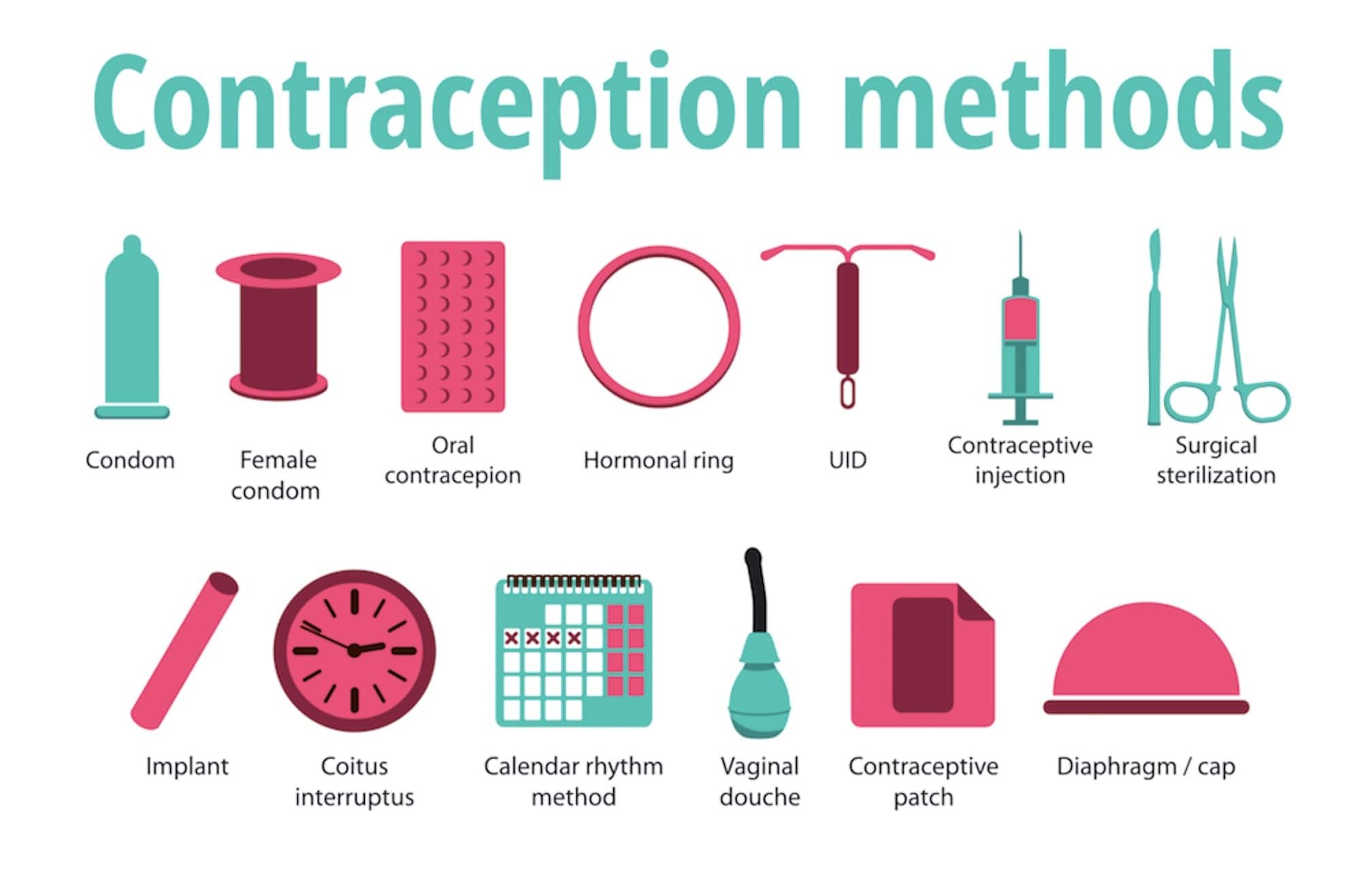
Whether you’re thinking of starting a family soon or waiting to get pregnant until “someday,” it’s important to understand the basics of family planning. Family planning is the voluntary planning and action to prevent, delay or achieve pregnancy. It can enable women to have the number of children and spacing between pregnancies they desire, which can positively impact the health and well-being of both women and their families.
If you’re not ready for a baby, family planning services can be beneficial to you. Pregnancy prevention is cheaper than prenatal care! Family planning services include:
- Counseling and education
- Preconception healthcare, screening, and laboratory tests
- Family planning methods (to compare methods side-by-side, click here.)
In the State of Hawaii, there are a number of clinics that provide Family Planning Services. For a directory of clinics near you, click here.
Family Planning Methods
There are many methods to help you plan your family. Your healthcare provider can help you select the option that’s best for you. Family planning methods encompass all FDA-approved methods of contraception, including:
Condoms (Male & Female)
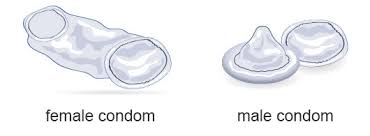
Condoms are also protective against sexually transmitted diseases (STDs), which are linked to infertility and death. If you’ve had unprotected sex in the past, it’s important to get tested for STDs. They often have no obvious signs or physical symptoms, so regular screenings are critical.
Cervical Cap
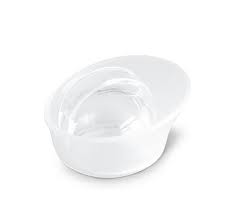
A cervical cap is a silicone cup you insert in your vagina to cover your cervix and keep sperm out of your uterus, it is about an inch and a half wide and one inch high. However, you need to use a cervical cap with spermicide for it to be most effective.
Birth Control Implant
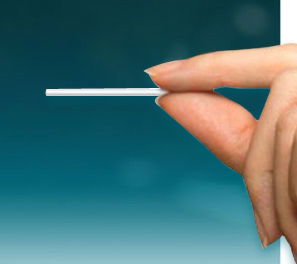
A small thin plastic rod is placed by a physician in a woman’s upper arm during an office visit. The implant releases hormones that prevent you from getting pregnant. It provides contraception for up to 3 years.
Birth Control Pills
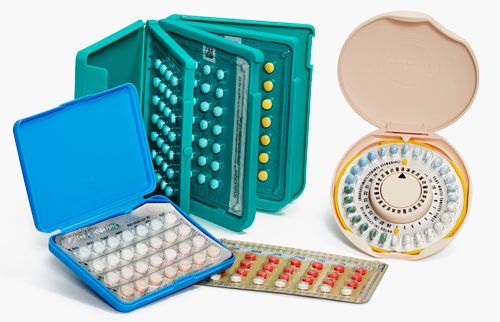
Oral contraceptives, also known as “The Pill”, are available in a variety of formulations and are taken by mouth daily to prevent pregnancy.
Ring
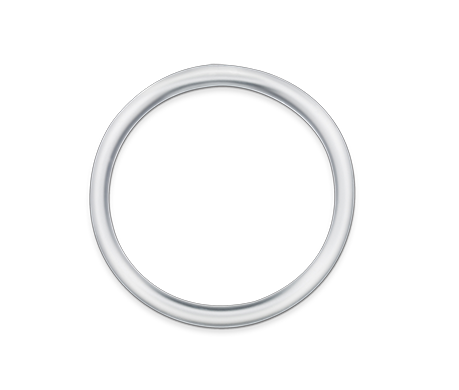
The contraceptive ring, NuvaRing, is a flexible plastic ring placed inside the vagina and replaced every 3 weeks.
Emergency Contraception
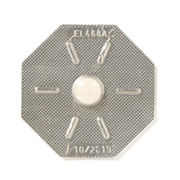
Also known as the “Morning After Pill”, emergency contraception can be used up to 120 hours (5 days) after unprotected sex to reduce your chances of becoming pregnant. It’s more effective the sooner you use it after unprotected sex. Plan B One-Step, Next Choice One Dose,Take Action, and My Way emergency contraceptives are available over-the-counter at pharmacies and without a prescription. Ask your physician what type of emergency contraception is recommended for you.
Diaphragm
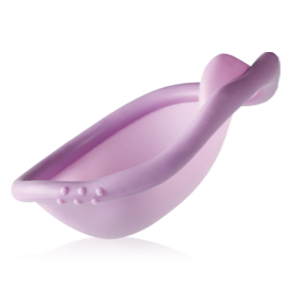 A diaphragm is a shallow, dome-shaped cup made of silicone, it’s only a few inches in diameter. You insert the diaphragm into your vagina and it covers your cervix and keeps sperm out of your uterus. However, for a diaphragm to work effectively, you need to use it with spermicide.
A diaphragm is a shallow, dome-shaped cup made of silicone, it’s only a few inches in diameter. You insert the diaphragm into your vagina and it covers your cervix and keeps sperm out of your uterus. However, for a diaphragm to work effectively, you need to use it with spermicide.Spermicide
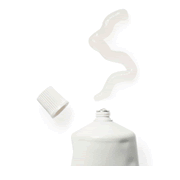
“Spermicide” describes a bunch of different creams, films, foams, gels, and suppositories that contain chemicals that stop sperm from moving. You insert it deep in your vagina, so it also keeps sperm from getting through your cervix and into your uterus.
IUD
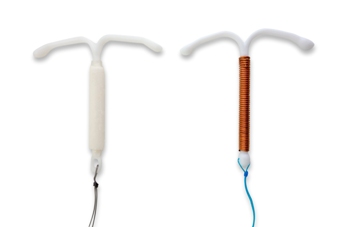
The IUD (Intrauterine Device) is a small, T-shaped device that a physician places in your uterus during an office visit. IUDs work by preventing sperm from reaching an egg. There are 2 types of IUDs: non-hormonal copper IUDs (ParaGard), and hormone-releasing IUDs (Mirena, Kyleena, Liletta, Skyla). The hormone-releasing IUDs secrete a small amount of a progestin hormone which helps prevent pregnancy.
- Paragard lasts up to 12 years.
- Mirena good for up to 5 years.
- Kyleena is good for up to 5 years.
- Liletta is good for up to 4 years.
- Skyla IUD is good for up to 3 years.
Patch
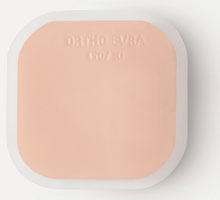
The contraceptive patch, also known as Ortho-Evra, is a hormone-releasing contraceptive patch worn on the skin. The patch is replaced once a week.
Injection

Depo-Provera is a contraceptive injection given in your physician’s office once every 3 months. It works by releasing a progestin hormone which prevents ovulation and makes it more difficult for sperm to enter the cervix.
Sterilization
Also known as the “Fertility Awareness Methods” or the “Rhythm Method”, natural family planning methods help you track your ovulation cycle so you can avoid sex or use an alternate method of birth control such as condoms during your fertile time to prevent pregnancy.
Abstinence
Abstinence is avoiding sexual activity to prevent pregnancy and STDs.
Remember, condoms and abstinence are the only methods of birth control that prevent the transmission of STDs. If you’ve had unprotected sex, be sure to ask your healthcare provider to test you for STDs. If left undetected, STDs can cause infertility and even death.
Family Planning Services
Family planning services offer more than just birth control, and may also include:
- Abortion services
- HIV testing
- LGBT services
- Men’s healthcare
- Morning-After Pill (Emergency Contraception)
- STD testing, treatment, and vaccinations
- HPV vaccinations
- Women’s healthcare
Family planning is also protective against sexually transmitted diseases (STD), which is linked to infertility and death. If you have had unprotected sex in the past, it is important to get tested. STDs often have no obvious sign or physical symptoms, therefore regular screenings are critical.
To access a directory of clinics in the State of Hawaii that provide family planning services, please click here.
Learn More



